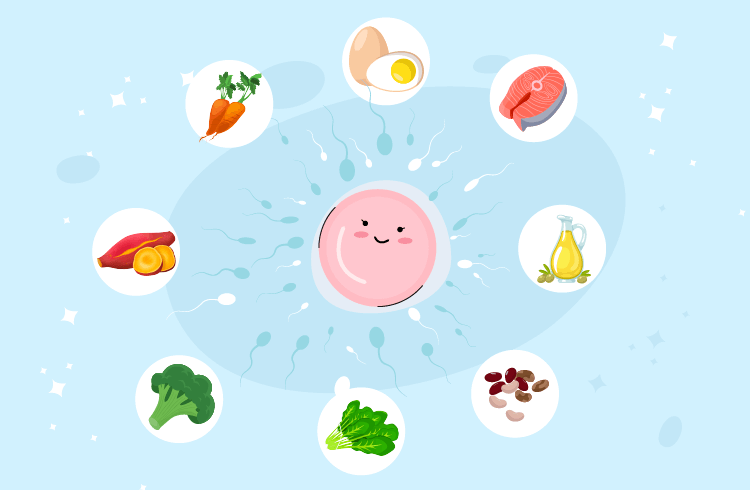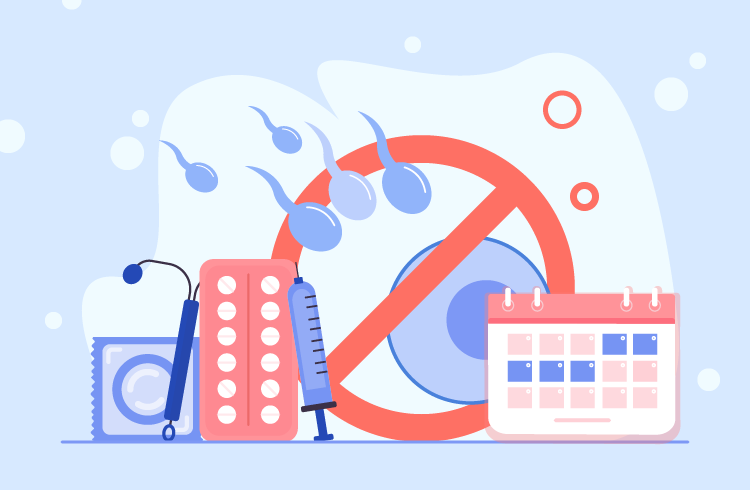10 Most Asked Questions About Ectopic Pregancy:
• When can I start trying to conceive again?
• How can I try to prevent another ectopic pregnancy?
• I had to have one of my tubes removed, can I still get pregnant naturally?
• When will I ovulate again after an ectopic pregnancy?
• How can I improve my fertility after an ectopic pregnancy?
• How can I tell if I am ovulating?
• Will ovulation predictor kits help with pregnancy?
• Can I take Myo-inositol to improve my fertility?
• I don't have any fallopian tubes now, is there any chance of getting pregnant?
• I've heard you're really fertile after an ectopic pregnancy, is this true?
Q1: When can I start trying to conceive again?
Answer:
After experiencing an ectopic pregnancy, the recommended waiting period before trying to conceive again is typically around three months. This period allows your body to heal physically and emotionally from the trauma of the ectopic pregnancy. The main reason for this delay is to ensure that your body fully recuperates and is ready to support a healthy pregnancy. The recovery period after an ectopic pregnancy is essential for several reasons:
1. Physical Healing:
Your body requires time to heal after the treatment or surgery for the ectopic pregnancy. This recovery phase is crucial to allow your reproductive system to return to normal functioning.
2. Emotional Well-being:
Coping with the loss of a pregnancy, the fear, and the stress associated with the ectopic pregnancy can take an emotional toll. Taking time to emotionally recover and regain stability before attempting to conceive again is vital for your mental health during the next pregnancy journey.
3. Reducing Risks:
Awaiting at least three months can reduce the risks of complications in subsequent pregnancies. It helps ensure that the uterine lining is properly prepared for implantation and that your body is in optimal condition to support a healthy pregnancy.
4. Medical Advice:
Following medical advice is crucial. Depending on the severity of the ectopic pregnancy and the treatment received, your healthcare provider might recommend a longer wait before trying to conceive again. For those over 35 or those who underwent surgical interventions, additional time may be necessary to allow for complete healing and recovery.
Taking this time to recuperate physically and emotionally increases the chances of a successful pregnancy in the future and can support a healthier pregnancy journey overall. Always consult with your healthcare provider for personalized guidance tailored to your situation.
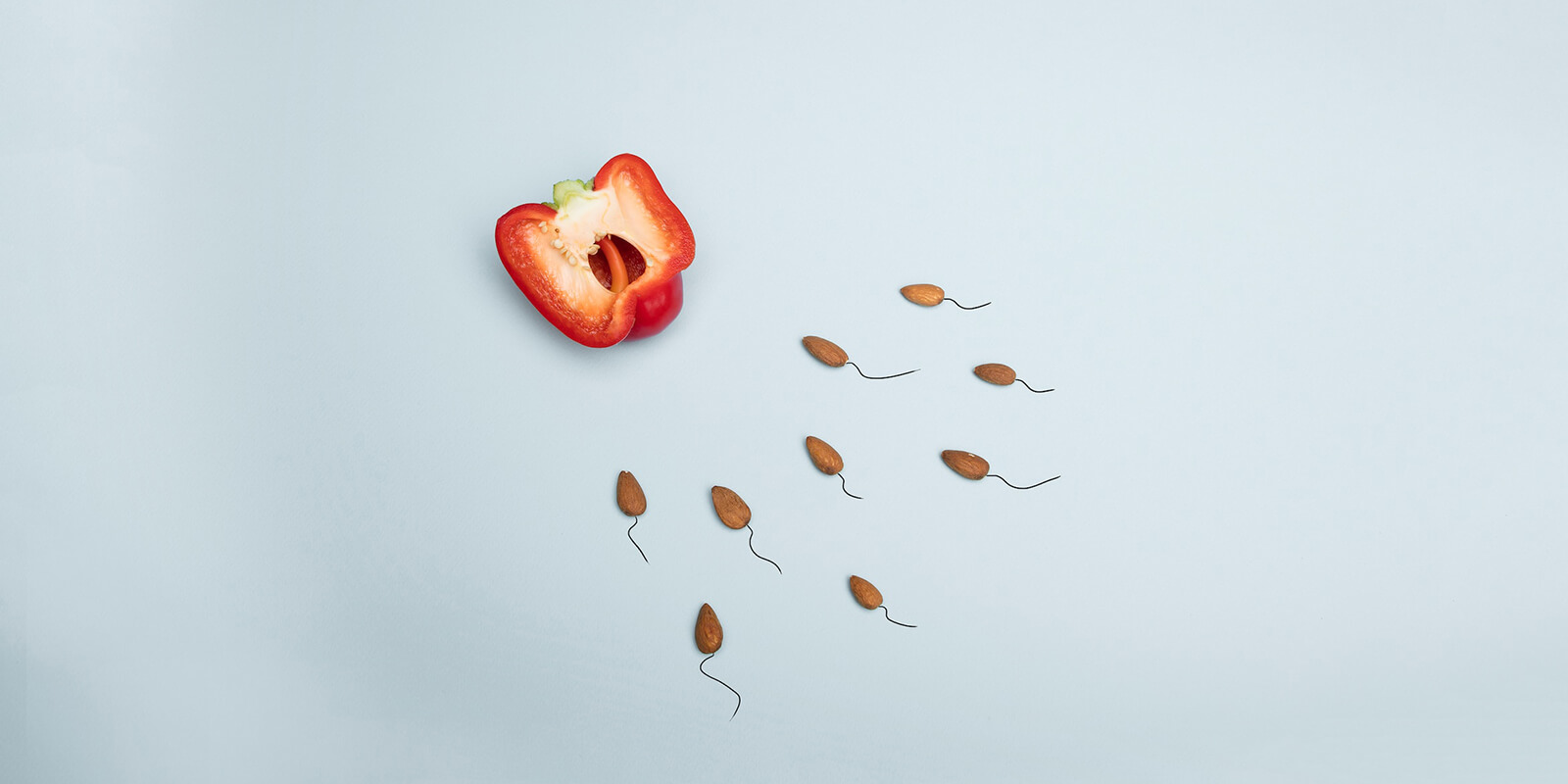
Q2: How can I try to prevent another ectopic pregnancy?
Answer:
Preventing another ectopic pregnancy largely depends on understanding the potential causes and risk factors associated with it. While not all ectopic pregnancies are preventable, here are some steps that might help reduce the risk:
Early Detection and Treatment of Risk Factors: Seek medical advice if you have conditions such as pelvic inflammatory disease (PID), endometriosis, or previous tubal surgery. Treating these conditions promptly may lower the risk of an ectopic pregnancy.
1. Healthy Lifestyle:
Maintaining a healthy lifestyle can be beneficial. Avoid smoking and excessive alcohol consumption, which may affect fertility and increase the risk of ectopic pregnancy.
2. Regular Check-ups:
Routine gynecological check-ups are essential, especially if you are trying to conceive after an ectopic pregnancy. Regular monitoring can help detect and manage potential risk factors early.
3. Contraception and Family Planning:
If you're not ready for another pregnancy immediately, discuss effective contraceptive methods with your healthcare provider. Planning your next pregnancy thoughtfully, considering factors such as age and health, might help reduce the risk.
4. Early Prenatal Care:
As soon as you suspect you might be pregnant, seek early prenatal care. Timely confirmation of a viable intrauterine pregnancy through ultrasounds can help ensure the pregnancy is progressing normally within the uterus.
It's important to remember that while these steps might reduce the risk, they don't guarantee the prevention of another ectopic pregnancy.
Q3: I had to have one of my tubes removed, can I still get pregnant naturally?
Answer:
You can still get pregnant naturally with only one fallopian tube. Each month, an egg is released alternately from the ovaries, and the fallopian tubes are responsible for transporting the egg toward the uterus. After ovulation, the fallopian tube on the same side as the ovary where the egg was released picks up the egg.
However, the chances of conception may be slightly reduced compared to having both fallopian tubes intact, especially if the remaining tube has any issues or if there are other fertility concerns.
Q4: When will I ovulate again after an ectopic pregnancy?
Answer:
After an ectopic pregnancy, the timing of ovulation can vary. Generally, it might take a few weeks to a couple of months for ovulation to resume. However, it's essential to consult with a healthcare provider to assess your individual situation, as the timing can differ based on various factors such as hormonal levels and overall health.
Q5: How can I improve my fertility after an ectopic pregnancy?
1. Give Yourself Time to Heal:
Allow your body time to recover physically and emotionally from the ectopic pregnancy before attempting to conceive again. This typically involves waiting a few months.
2. Seek Medical Guidance:
Consult with your healthcare provider for personalized advice. They can offer insights into your specific situation, including potential risks, and provide guidance on the best timing to try to conceive again.
3. Healthy Lifestyle Changes:
Focus on maintaining a balanced diet, regular exercise routine, and healthy habits. Avoid smoking, limit alcohol intake, and manage stress levels. These lifestyle changes can positively impact fertility.
4. Monitor Your Cycles:
Track your menstrual cycles and ovulation using methods such as tracking basal body temperature or ovulation predictor kits. Understanding your cycle helps identify your fertile window, increasing the chances of conception.
5. Consider Fertility Treatments:
Depending on your situation, your doctor might recommend fertility treatments, such as in vitro fertilization (IVF), to optimize your chances of conception.
6. Support and Counseling:
Seek emotional support or counseling if needed. An ectopic pregnancy can be emotionally challenging, and speaking with a professional or joining support groups can help manage the emotional aspects of this experience.
Q6: How can I tell if I am ovulating?
Answer:
You can track ovulation through various methods. Basal Body Temperature (BBT) charting is a reliable way to monitor ovulation. Using a BBT thermometer, like the Femometer Vinca (a Bluetooth BBT thermometer), take your temperature every morning before getting out of bed. Around ovulation, a slight temperature rise occurs, indicating that ovulation has already happened.
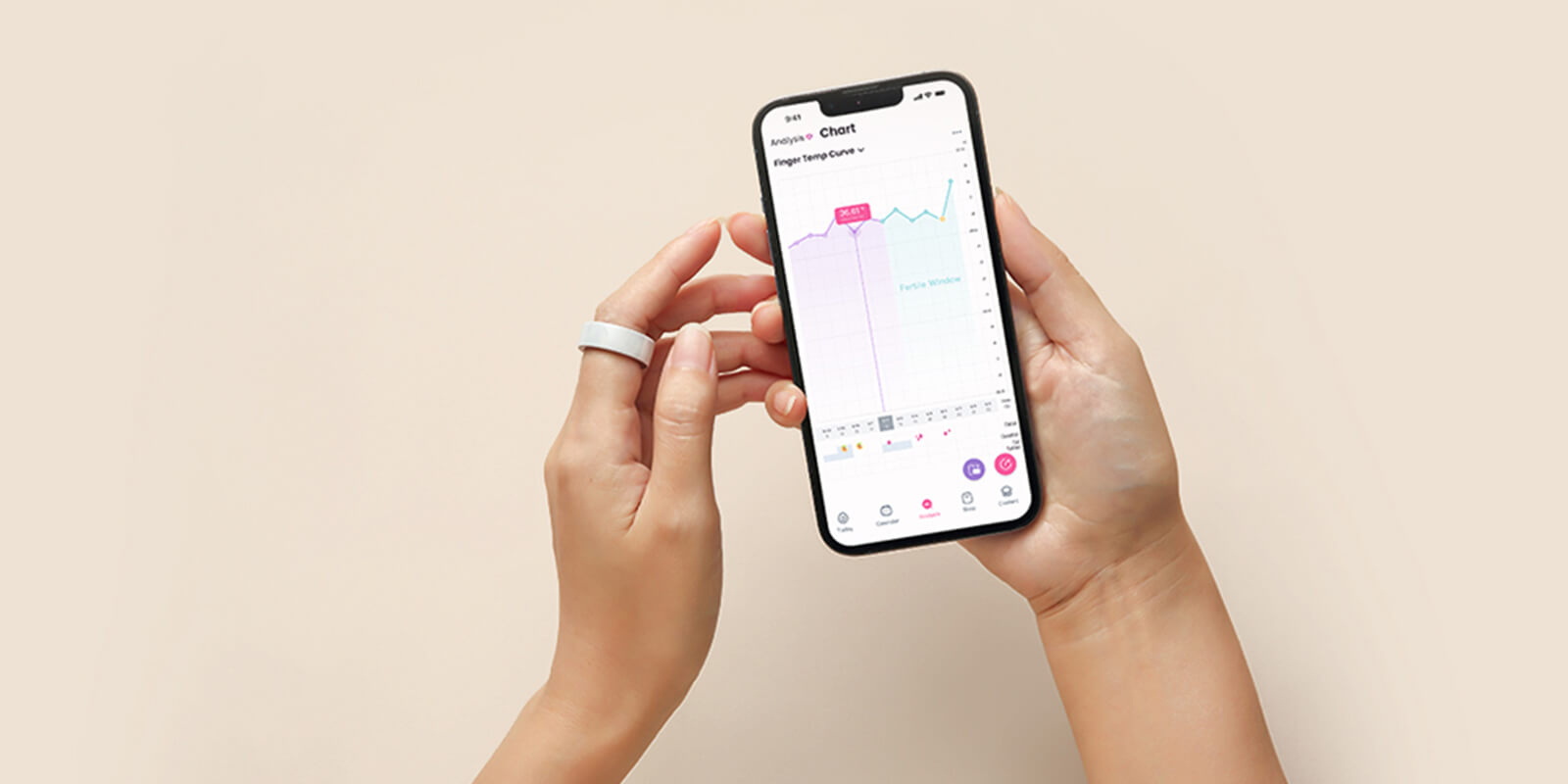
Smart BBT rings, like the Femometer Smart Ring, offer an advanced approach. These devices monitor various physiological parameters, including temperature, to predict your fertile window more accurately.
Alongside these smart devices, BBT charting with a regular BBT thermometer is an effective, low-cost method. By recording your daily temperatures over several cycles, you'll notice a pattern, helping predict when you're most likely to ovulate. This combined approach can offer more precision in identifying your fertile days, enhancing your chances of conceiving.
Q7: Will ovulation predictor kits help with pregnancy?
Answer:
Yes! As these help identify when you are likely to ovulate. We recommend our product the Ivy103.
Femometer's Ivy103 is an advanced ovulation predictor kit (OPK) designed to assist in achieving your conception goal by tracking the luteinizing hormone (LH) surge. With Ivy103, you can precisely predict your LH surge, identifying the ideal time for intercourse to enhance your chances of conception. Its detailed digital display showcases test results in a clear and easily readable format. The device is supported by an AI-powered app, utilizing big data to accurately pinpoint your ovulation day. Ivy103 is eco-friendly as it's refillable and reusable, offering convenience with refill availability. Offering quick results in under 6 minutes, it ensures you get timely information. With an exceptional LH surge detection accuracy of over 99%, Ivy103 provides reliable and trustworthy results, empowering your conception journey.
Q8: Can I take Myo-inositol to improve my fertility?
Answer:
Myo-inositol is believed to have positive effects on fertility by promoting the growth and release of healthy eggs. This compound plays a role in balancing hormones, which in turn supports reproductive health. While individual responses may vary, some studies suggest that myo-inositol supplementation could potentially benefit fertility by aiding in the regulation of menstrual cycles and ovarian function. However, it's essential to consult with a healthcare professional before starting any new supplements or treatments to address fertility concerns.
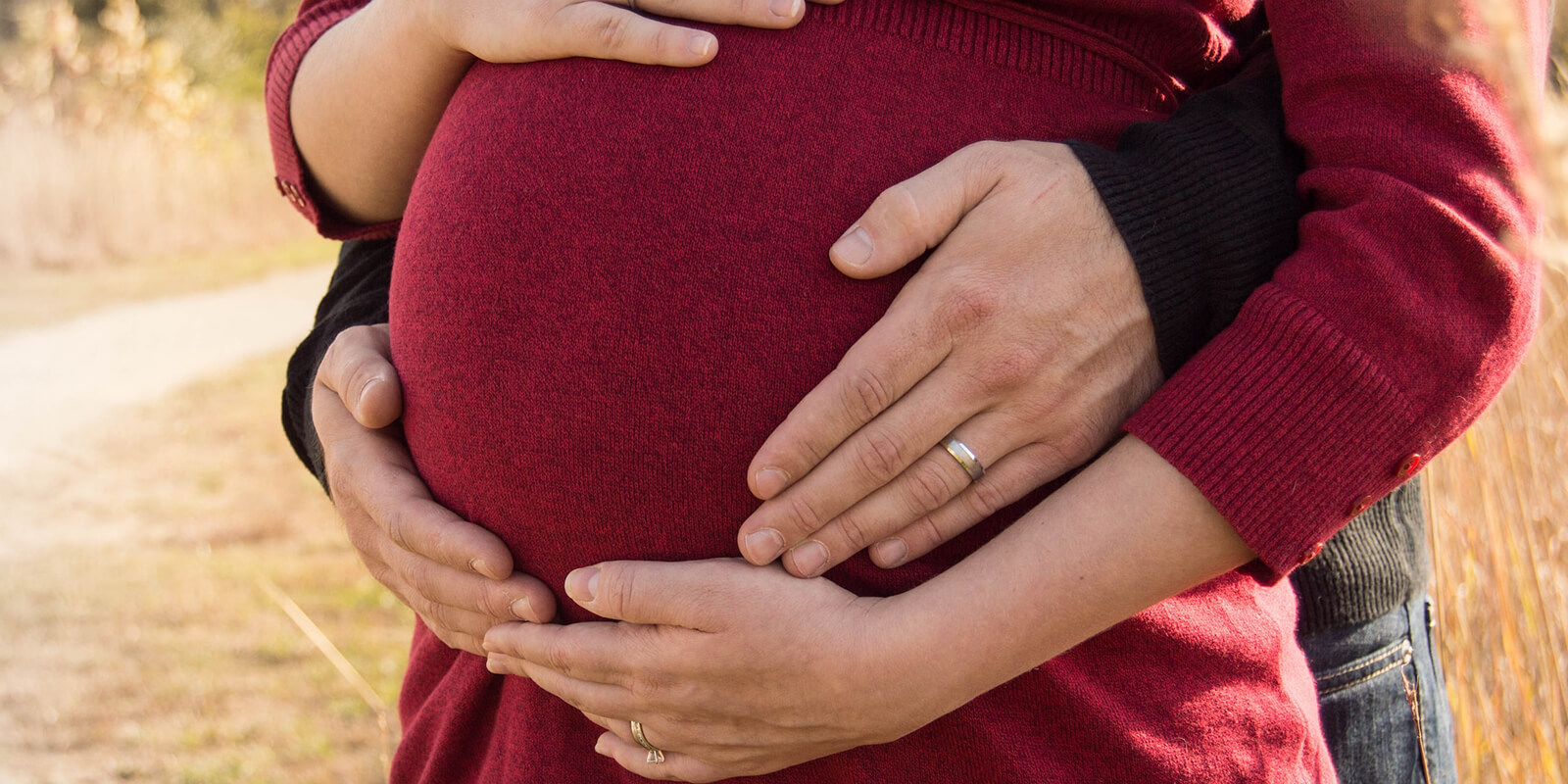
Q9: I don't have any fallopian tubes now, is there any chance of getting pregnant?
Answer:
Without fallopian tubes, natural conception becomes challenging as these structures are vital for transporting eggs from the ovaries to the uterus. The absence of fallopian tubes typically prevents the egg from meeting sperm for fertilization.
However, advancements in assisted reproductive technologies offer alternative options for conception. In vitro fertilization (IVF) is a common method used in such cases. IVF involves fertilizing the egg with sperm in a laboratory and then transferring the resulting embryo directly into the uterus. This method bypasses the need for fallopian tubes, offering a viable option for individuals who do not have them but want to get pregnant.
Q10: I've heard you're really fertile after an ectopic pregnancy, is this true?
Answer:
The idea that fertility significantly increases after an ectopic pregnancy is still being debated. While some individuals might conceive soon after an ectopic pregnancy, it doesn't necessarily indicate higher fertility. However, in certain cases, an ectopic pregnancy can prompt individuals to reassess their reproductive health, leading them to seek assistance and potentially optimize their chances of conception.
It's essential to note that experiencing an ectopic pregnancy doesn't guarantee a boost in fertility. Factors such as the cause of the ectopic pregnancy, any medical treatments required, and the specific health circumstances of the individual can significantly impact fertility.
This article is the original creation of Femometer. All rights reserved by Femometer Inc. To reproduce, distribute, or reference the content, please reach out to us in advance to prevent any potential legal issues. Copyright © Femometer Inc.






